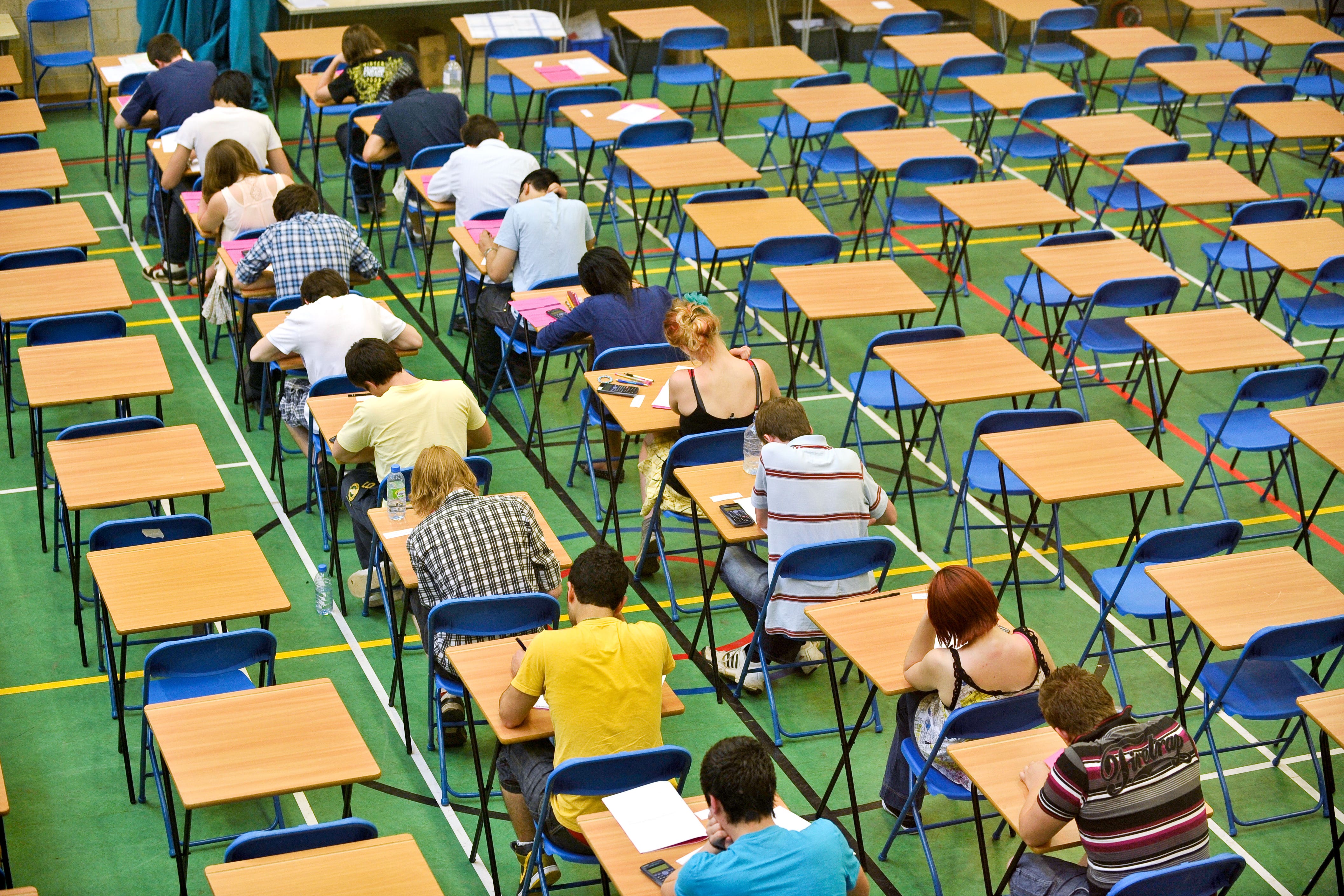16,000 fewer top A-level grades could be awarded this summer, expert suggests
Professor Alan Smithers also predicts that boys’ lead over girls in scoring more A* grades could widen this year.

Around 16,000 fewer top A-level grades could be awarded this summer, it has been suggested.
An education expert has predicted that the percentage of UK A-level entries awarded an A or A* grade will fall again this year as part of continued efforts to restore pre-pandemic grading.
Exams regulator Ofqual has said it expects this year’s A-level results in England to be “broadly similar” to last summer – when grades were brought back in line with pre-Covid levels.
Ahead of A-level results day next week, Professor Alan Smithers, director of the Centre for Education and Employment Research (CEER) at the University of Buckingham, has predicted there could be around 16,000 fewer A or A* grades awarded this year compared with 2023.
He has suggested the drop in results will be “proportionally greater” in Wales and Northern Ireland as they are aiming to restore pre-pandemic standards this summer, whereas England had this target last year.
August 2024 is when we can expect the grades to return to what they were in 2019
It comes after Covid-19 led to an increase in top GCSE grades in 2020 and 2021, with results based on teacher assessments instead of exams.
Last summer, more than a quarter (27.2%) of UK A-level entries were awarded an A or A* grade, down by 9.2 percentage points on 2022 when 36.4% achieved the top grades.
However, this was still higher than in 2019 – the last year that summer exams were taken before the pandemic – when 25.4% of entries were awarded A or A* grades.
Prof Smithers said: “August 2024 is when we can expect the grades to return to what they were in 2019.
“But many parents, pupils, and teachers were unhappy at the reductions in 2023.
“With an overabundance of top grades, however, they do not do what they are there for, which is to distinguish levels of performance.”
Figures covering A-level entries from students in England, Wales and Northern Ireland will be published by the Joint Council for Qualifications (JCQ) on Thursday next week.
In his report, Prof Smithers also predicts that boys’ lead over girls in scoring more A* grades could widen this year.
Last year, 9.1% of boys’ entries scored an A* grade, compared with 8.8% of girls’ entries – a 0.3 percentage point gap.
This reversed a recent trend as girls were ahead in the top result for the previous three years.
In his report, Prof Smithers suggested that there could be “major swings” in exam entries which he added could reflect “changing perceptions of the value of A-levels and university degrees”.
Reflecting on provisional exam entries data for England, the education expert said “long-term trends are likely to be shaken up in 2024″.
A-level entries for modern foreign languages have increased, but entries for sociology are down, according to provisional figures from Ofqual in June.
Prof Smithers said: “After two decades of continuous growth the social sciences fell, while French and German showed signs of revival after 30 years in decline.
“There was a general move away from the social sciences, humanities and performing arts towards subjects seen as the path to more occupationally valuable degrees, such as further maths, maths, physics, and computing.”
He added: “It may be that the heavy promotion of the sciences for their occupational value is swaying young people with the appropriate GCSEs in that direction when those aiming for university know they will be accumulating substantial debt.”
A Department for Education (DfE) spokesperson said: “Young people up and down the country will be looking forward to collecting results next week and taking their next step, and should be proud of their achievements after the disruption of recent years.
“For the second year in a row, A-level grading will be at pre-pandemic levels in England, ensuring qualifications maintain their value and students get the opportunities they deserve.
“We expect overall results for A-levels to be broadly similar to last year and universities have taken that into account when making offers this year.”
Bookmark popover
Removed from bookmarks